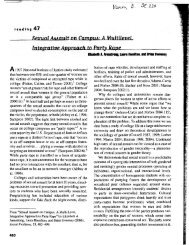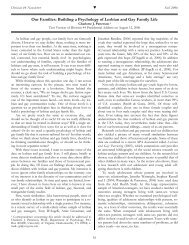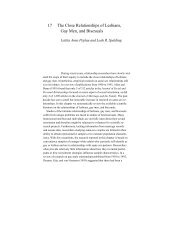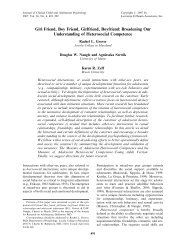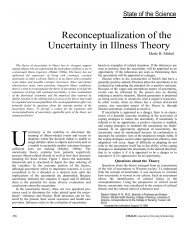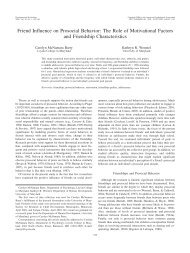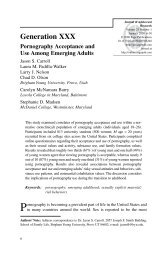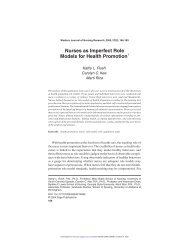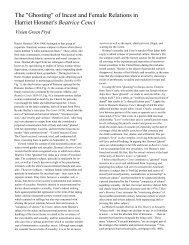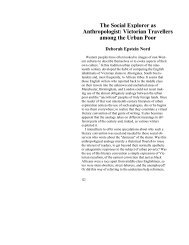The dissertation of Kelley, IHM, MS_________________ entitled ...
The dissertation of Kelley, IHM, MS_________________ entitled ...
The dissertation of Kelley, IHM, MS_________________ entitled ...
Create successful ePaper yourself
Turn your PDF publications into a flip-book with our unique Google optimized e-Paper software.
Grief in Women Religious 42<br />
with or even have regular contact with other individuals who also are grieving for the<br />
deceased. Moreover, they do not have a spouse or children and the emotional ties that<br />
spring from relationships <strong>of</strong> this nature. Research indicates that nontraditional<br />
relationships may lead to additional problems during the grieving process (Doka, 1987).<br />
Moreover, during times <strong>of</strong> bereavement, the structure <strong>of</strong> religious life may inhibit<br />
women religious from utilizing their social support system to its full effectiveness. <strong>The</strong><br />
mean and standard deviation scores <strong>of</strong> social support, for the active and contemplative<br />
women noted in Table 3, are lower than those <strong>of</strong> college students in the original study (M<br />
= 145.26, Sarason et al., 1983). Religious life demands a willingness to embrace self-<br />
sacrifice, live by countercultural values, and follow specific rules. For contemplative<br />
religious, this may mean restricted contact with their support system. This may<br />
demonstrate itself through limited contacts by phone, visits, or an in depth sharing <strong>of</strong><br />
feelings. For active women religious, this may be the consequence <strong>of</strong> living apart from<br />
their religious community, the responsibilities and time restraints <strong>of</strong> their ministry, or the<br />
obligations they have to their communities. Research indicates that the structure <strong>of</strong> an<br />
organization can hinder the positive impact <strong>of</strong> social support and stresses that the effects<br />
<strong>of</strong> social support depends on the degree <strong>of</strong> contact between individuals (Vachon &<br />
Stylianos, 1988).<br />
Furthermore, when active and contemplative women religious were examined as<br />
one group, spirituality at time 1 did not predict grief symptoms at time 2. In contrast,<br />
when the results were examined separately by group (active and contemplative),<br />
spirituality at time 1 for the active women religious did impact grief at time 2. <strong>The</strong><br />
present study's finding that spirituality did not impact grief symptoms over time, when



